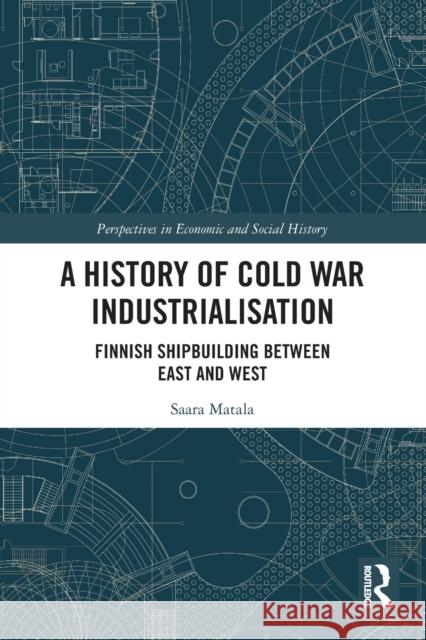A History of Cold War Industrialisation: Finnish Shipbuilding between East and West » książka
A History of Cold War Industrialisation: Finnish Shipbuilding between East and West
ISBN-13: 9781032033341 / Angielski / Miękka / 2023 / 234 str.
A History of Cold War Industrialisation: Finnish Shipbuilding between East and West
ISBN-13: 9781032033341 / Angielski / Miękka / 2023 / 234 str.
(netto: 185,39 VAT: 5%)
Najniższa cena z 30 dni: 186,33 zł
ok. 22 dni roboczych
Bez gwarancji dostawy przed świętami
Darmowa dostawa!
This monograph explores the economic consequences of the Cold War, a polarised world order which politicised technology and shaped industrial development. It provides a detailed archival-based history of the Finnish shipbuilding industry (1952–1996), which f lourished, thanks to the special relationship between Finland and the Soviet Union. Overall, it shows how a small country, Finland, gained power during the Cold War through international economic and technological cooperation. The work places Finland in a firmly international context and assesses the state–industry relationship from five different angles: technopolitics, trade infrastructure, techno-scientific cooperation, industrial reorganisation, and state aid. It presents a novel way to analyse industrialisation as an interaction between institutional stabilisation and f luctuation within a techno-economic system. In so doing, it makes empirical, theoretical, and methodological contributions to the history of industrial change. A History of Cold War Industrialisation will be of interest to advanced students and scholars in economic history, maritime history, Cold War history, and international political economy.
This monograph explores the economic consequences of the Cold War, a polarised world order which politicised technology and shaped industrial development. It provides a detailed archival-based history of the Finnish shipbuilding industry (1952–1996), which f lourished, thanks to the special relationship between Finland and the Soviet Union. Overall, it shows how a small country, Finland, gained power during the Cold War through international economic and technological cooperation. The work places Finland in a firmly international context and assesses the state–industry relationship from five different angles: technopolitics, trade infrastructure, techno-scientific cooperation, industrial reorganisation, and state aid. It presents a novel way to analyse industrialisation as an interaction between institutional stabilisation and f luctuation within a techno-economic system. In so doing, it makes empirical, theoretical, and methodological contributions to the history of industrial change. A History of Cold War Industrialisation will be of interest to advanced students and scholars in economic history, maritime history, Cold War history, and international political economy.











